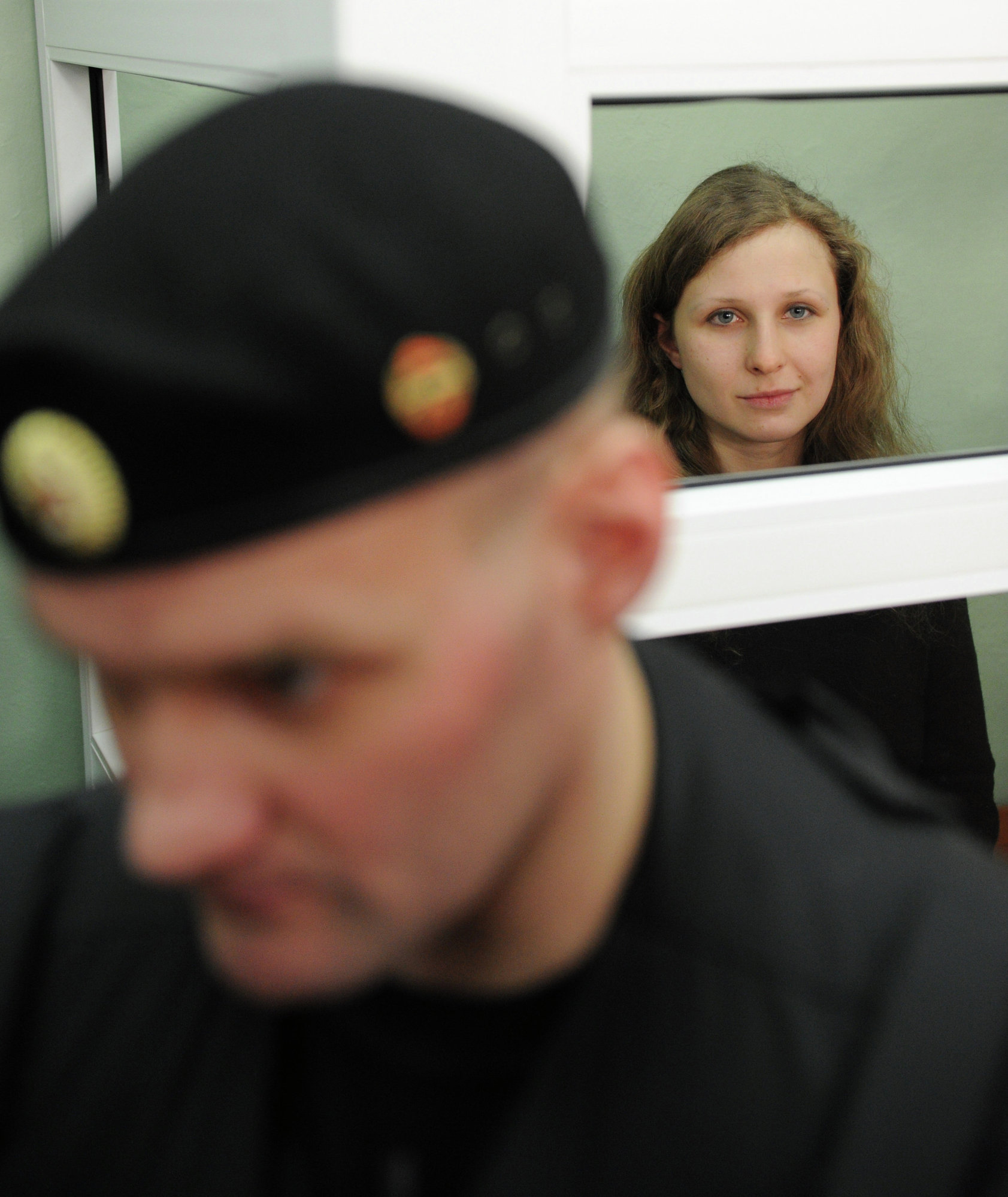MOSCOW, January 29 - RAPSI. A Perm Territory court that ruled earlier this month that Pussy Riot member Maria Alyokhina would serve out the remainder of her punk-prayer sentence despite appeals for lenience so that she might care for her young child told RAPSI Tuesday that the band member’s complaints against the prison are not within the court’s bailiwick at this point.
During the hearing, which was held on January 16, Alyokhina had raised complaints with regard to several disciplinary reprimands she has received since beginning to serve her time at the Perm penal colony.
These reprimands – six in total – arose from various scenarios, including Alyokhina’s refusal to wake up on time.
During the hearing, Alyokhina complained that challenges she raised to these reprimands in the prison elicited a lack of meaningful response.
RAPSI reached out to the court Tuesday for clarity on whether it intended to follow up on Alyokhina’s complaints, to which a court spokesperson responded, the complaint will be considered in the prison.
It remains unclear whether the complaints will be heard by the court if appealed beyond the limits of the penal colony.
In late February, five young women wearing brightly colored balaclavas performed a "punk-style" prayer at Moscow's Christ the Savior Cathedral. An edited video of their performance was posted on the Internet and caused a public outcry.
Pussy Riot members Nadezhda Tolokonnikova, Maria Alyokhina and Yekaterina Samutsevich were arrested shortly thereafter. On August 17, the Khamovniki District Court sentenced them to two years in a prison settlement for disorderly conduct.
On October 10, the Moscow City Court changed Samutsevich's verdict to a suspended sentence and released her immediately based on her new attorney’s argument that the defendant was seized by security guards prior to making it to the alter; thus she did not actually perform the punk prayer with the other girls. The court upheld the sentences handed down to Alyokhina and Tolokonnikova.
On January 16, a court in the Perm District’s town of Berezniki entertained Alyokhina’s appeal to have her sentence suspended until her young son reaches the age of maturity.
Under Russian law, courts are authorized to grant suspended sentences in certain cases involving mothers and pregnant women convicted of crimes, in accordance with Article 82 of Russia’s Criminal Code. This typically extends to the age of 14.
The court rejected her appeal, however, explaining that the first-instance court had considered the age of her child as a mitigating factor in rendering its judgment.
The disciplinary reprimands factored heavily into the penal colony’s argument against Alyokhina’s suspended sentence during the hearing.



